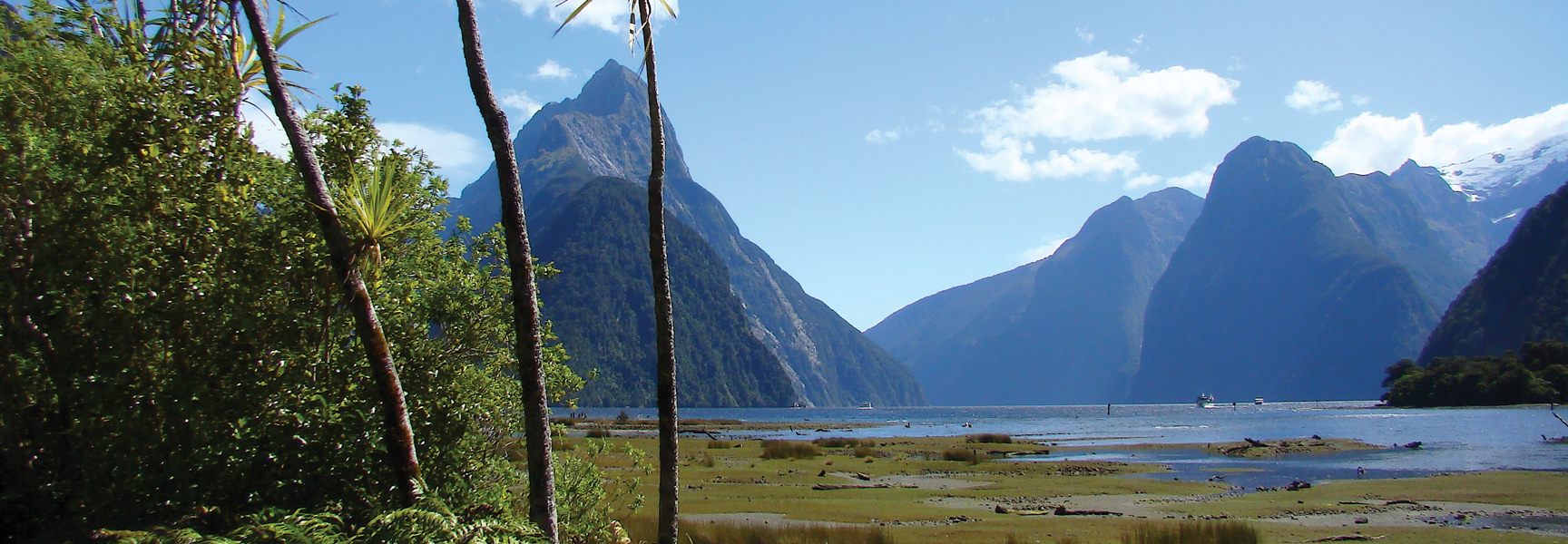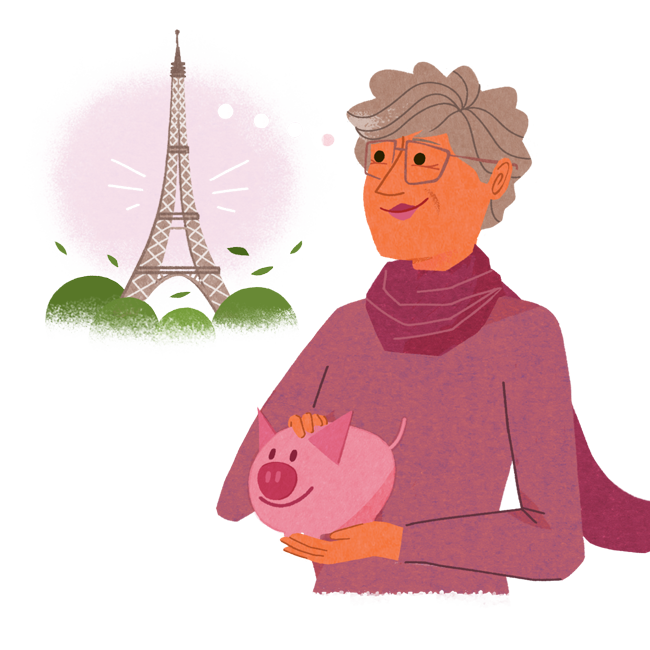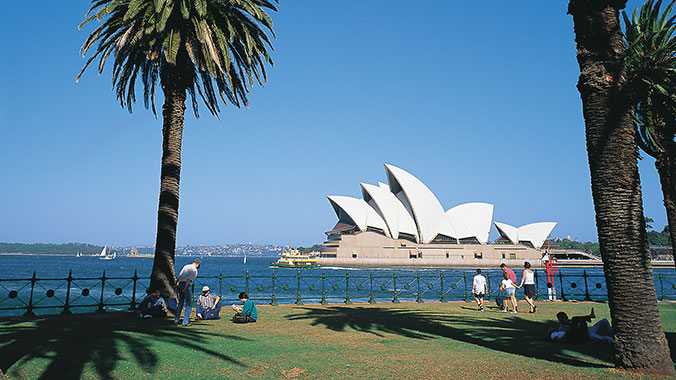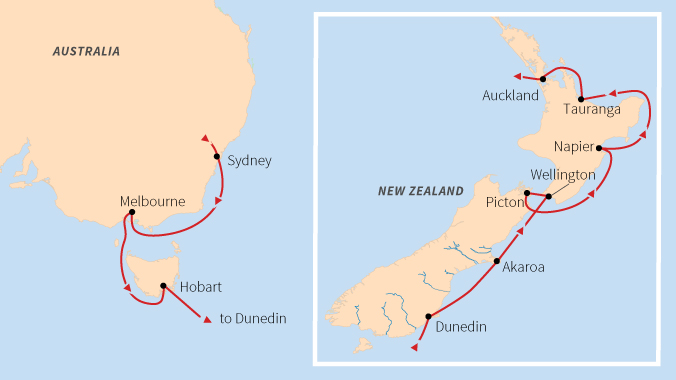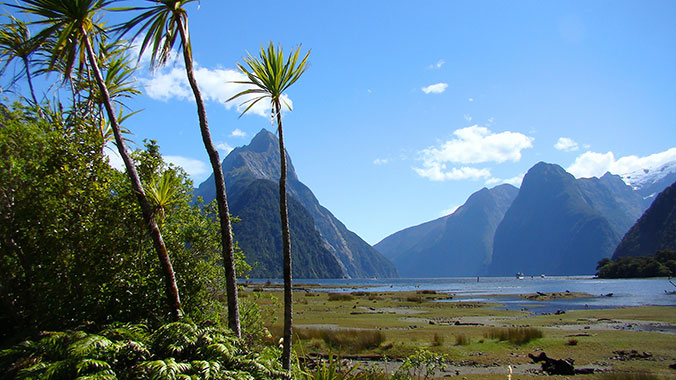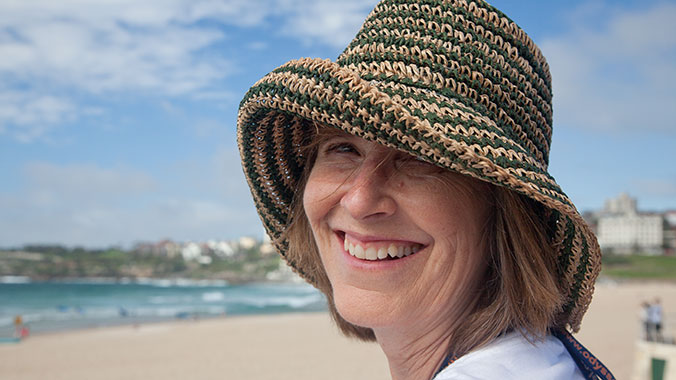A Commonwealth of Thieves, The Improbable Birth of Australia
by Thomas Keneally
With drama and flair, novelist Keneally illuminates the birth of New South Wales in 1788, richly evoking the social conditions in London, the miserable sea voyage and the desperate conditions of the new colony. His tale revolves around Arthur Phillip, the ambitious (and bland) captain in the Royal Navy who would become the first governor of New South Wales. You may be familiar with Keneally as the author of the acclaimed work (made into an equally-renowned film) "Schindler's List".
A Field Guide to the Birds of New Zealand
by Julian Fitter
Comprehensive and compact, this Princeton Pocket Guide by longtime resident Julian Fitter and Don Merton at New Zealand's Department of Conservation features 600 color photographs. With range maps, descriptions and excellent introductory chapters on conservation efforts and key national parks for bird watching
Aboriginal Art
by Wally Caruana
This well illustrated survey of Aboriginal art, ancient and modern, focuses on the spiritual and geographic sources of art and ritual traditions in Australia. It covers the range of art from all parts of the continent, including a chapter on the Wandjina rock art of the Kimberley region. The concise text is augmented by 187 well produced black-and-white and color illustrations.
Bradt Australian Wildlife
by Stella Martin
A guide not just to kangaroo and koala, this compact, illustrated survey, featuring 250 color photographs, takes in habitats, parks and conservation, marsupials, birds and bats.
Chasing Kangaroo
by Tim Flannery
An ode to the kangaroo in all their splendid diversity and oddity. Revisiting his early love of kangaroo fossils, Flannery weaves engaging tales of his adventures on the trails of marsupials past and present with his travels and encounters with eccentric scientists and Aboriginal & Torres Strait Islander peoples.
Cotter: A Novel
by Richard Begbie
A strong story of banishment, displacement, and crucial first contact, Cotter tells of a moving friendship between two very different men, ultimately powerless against the forces of history.
Dark Emu : Aboriginal Australia and the birth of agriculture
by Bruce Pascoe
History has portrayed Australia's First Peoples, the Aboriginals, as hunter-gatherers who lived on an empty, uncultivated land. History is wrong. Using compelling evidence from the records and diaries of early Australian explorers and colonists, Bruce Pascoe reveals that Aboriginal systems of food production and land management have been blatantly understated in modern retellings of early Aboriginal history, and that a new look at Australia's past is required - for the benefit of us all. Dark Emu, a bestseller in Australia, won both the Book of the Year Award and the Indigenous Writer's Prize in the New South Wales Premier's Literary Awards.
Deep Time Dreaming: Uncovering Ancient Australia
by Billy Griffiths
In this important book, Griffiths investigates a twin revolution - the reassertion of Aboriginal identity in the second half of the twentieth century, and the simultaneous uncovering of the traces of ancient Australia by pioneering archaeologists. Deep Time Dreaming is about a slow shift in national consciousness. It explores what it means to live in a place of great antiquity, with its complex questions of ownership and identity. It brings to life the deep time dreaming that has changed the way many Australians relate to their continent and its enduring, dynamic human history.
In A Sunburned Country
by Bill Bryson
Bill Bryson revels in Australia's eccentric characters, dangerous flora and fauna, and other oddities. As has become his custom, he effortlessly imparts much fact-filled history in this wildly funny book. Included at the end is a short bibliography. This book is published as "Down Under" in Australia, New Zealand and Great Britain.
Journey to the Stone Country
by Alex Miller
Betrayed by her husband, Annabelle Beck retreats from Melbourne to her old family home in tropical North Queensland where she meets Bo Rennie, one of the Jangga tribe. Intrigued by Bo's claim that he holds the key to her future, Annabelle sets out with him on a path of recovery that leads back to her childhood and into the Jangga's ancient heartland, where their grandparents' lives begin to yield secrets that will challenge the possibility of their happiness together.
My Place
by Sally Morgan
In 1982 Sally Morgan travelled to her grandmother's birthplace, Corunna Downs Station in Western Australia. She wants to trace the experiences of her childhood andolescence in Perth in the 1950's. Through memories and images, hints and echoes begin to emerge and another story unfolds - the mystery of her aboriginal identity. Gradually her whole family is drawn in to the saga and her great-uncle, her mother and finally her grandmother tell their stories in turn. My Place is a work of great humour, humanity and courage.
Position Doubtful
by Kim Mahood
Since the publication of her prize-winning memoir Craft for a Dry Lake, in 2000, writer and artist Kim Mahood has been returning to the Tanami desert country in far north-western Australia where, as a child, she lived with her family on a remote cattle station. The land is timeless, but much has changed- the station has been handed back to its traditional owners; the mining companies have arrived; and Aboriginal art has flourished. Comedy and tragedy, familiarity and uncertainty are Mahood's constant companions as she immerses herself in the life of a small community and in groundbreaking mapping projects. What emerges in Position Doubtful is a revelation of the significance of the land to its people - and of the burden of history.
Purakau: Maori Myths retold by Maori Writers
by Witi Ihimaera & Whiti Hereaka (editors)
A lively retelling of Purakau - Maori Myths - by contemporary Maori Writers.
Stories
by Katherine Mansfield
This collection includes three marvelous, long pieces which together constitute the beginnings of an unfinished novel based on Mansfield's childhood in Wellington, New Zealand in the 1890s.
The Bone People
by Keri Hulme
Set in modern-day South Island, this lyrical novel brings together three troubled individuals who represent New Zealand’s varied Maori and European traditions. Winner of the 1985 Booker Prize.
The Book Of Fame
by Lloyd Jones
In August 1905 a party of young men set sail for England. Among them were ordinary farmers and bootmakers, a miner and a bank clerk. Together they made up the All Blacks, an unknown rugby team from New Zealand. And they had come to show the world what they could do. What they didn't know was that they were bound for fame. In this melding of true history and imagination, Lloyd Jones has recreated an unforgettable journey from innocence to celebrity.
The Luminaries
by Eleanor Catton
It is 1866, and Walter Moody has come to make his fortune upon the New Zealand goldfields. On arrival, he stumbles across a tense gathering of twelve local men, who have met in secret to discuss a series of unsolved crimes. A wealthy man has vanished, a whore has tried to end her life, and an enormous fortune has been discovered in the home of a luckless drunk. Moody is soon drawn into the mystery: a network of fates and fortunes that is as complex and exquisitely patterned as the night sky. The Luminaries, an extraordinary work of fiction, was the Man Booker prize winner in 2013.
The Meaning of Trees
by Robert Vennell
Robert Vennel is the manager of Auckland Museum's natural science collection. In this book, sub-titled "The History & Usage of New Zealand's Native Pants", he tells the story of plants and people in Aotearoa New Zealand. In addition to outlining indigenous bush kai (food), Vennell also investigates New Zealand's native plants in terms of their value for suitability for carving, weaving and rongoa (medicinal uses). He looks at traditional Maori usage of the forest and how it put sustainability above all else as well as how European settlers had to change their way of thinking when confronted with vastly different vegetation.
The Penguin History of New Zealand
by Michael King
This bestselling book is arguably the definitive contemporary reference to the history of New Zealand. New Zealand was the last country in the world to be discovered and settled by humankind. It was also the first to introduce full democracy. Between those events, and in the century that followed the franchise, the movements and conflicts of human history have been played out more intensively and more rapidly in New Zealand than anywhere else on Earth. The Penguin History of New Zealand tells that story in all its colour and drama. The narrative that emerges is an inclusive one about men and women, Maori and Pakeha. It shows that British motives in colonising New Zealand were essentially humane; and that Maori, far from being passive victims of a 'fatal impact', coped heroically with colonisation and survived by selectively accepting and adapting what Western technology and culture had to offer.
The Tears of Strangers
by Stan Grant
A family memoir charting the political and social changes of Aboriginal Australians over the past 40 years.
The Turning, New Stories
by Tim Winton
These 17 overlapping stories, steeped in everyday life on western Australia, follow the fates of a handful of characters in a small coastal town outside Perth. Winton, short-listed twice so far for the Booker Prize, has published a string of memorable novels, children's books and stories, all richly set in the working class milieu of the sparsely populated coastal desert.
True History of the Kelly Gang
by Peter Carey
A powerful, daring novel, steeped in the colonial history of late 19th-century Australia. Outlaw, folk hero, thief and patriot, the Irish immigrant Ned Kelly and his clan figure large in the Australian mindset. Carey's Booker Prize-winning novel (his second after "Oscar & Lucinda") takes the form of a series of rough, captivating letters by the barely literate gang leader to his young daughter. Kelly was hanged in Melbourne in 1880, where his mother was also imprisoned.
Whale Rider
by Witi Ihimaera
A magical, mythical novella about a young Maori girl and her relationship with a whale, that ultimately saves her village. Based loosely on Ihimaera’s youth in a Maori village.
